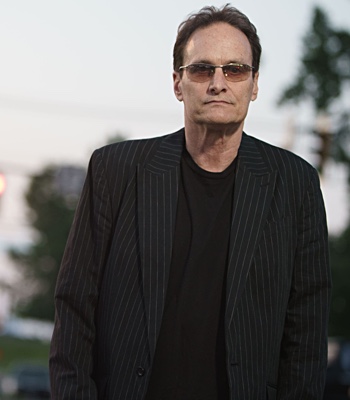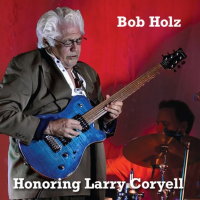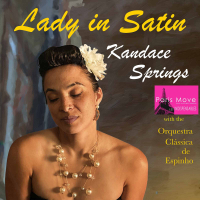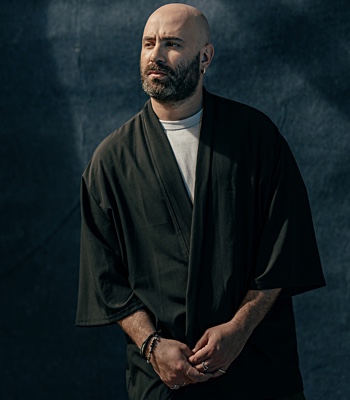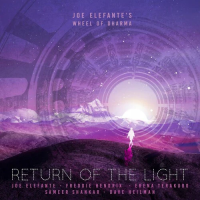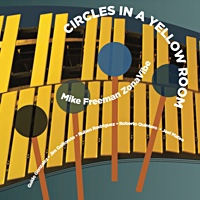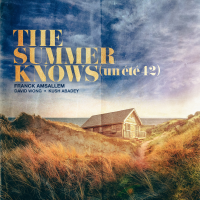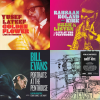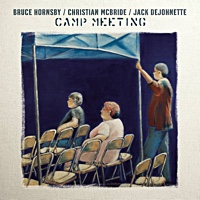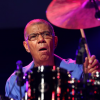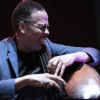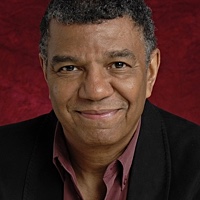Home » Jazz Articles » Wadada Leo Smith
Jazz Articles about Wadada Leo Smith
Karl Ackermann's Best Releases of 2017

by Karl Ackermann
2017 was an exceptional year for artists who elude convention; veterans such as Wadada Leo Smith and relative newcomers like Abdul Moimême gave us unique musical insights. It was an outstanding year for solo recordings. Along with Smith and Moimême, Rob Mazurek, Matthew Shipp, Irish multi-instrumentalist Aine O'Dwyer, Cuban pianist Aruán Ortiz, Italian pianist Stefano Battaglia, and Satoko Fujii were just a few of the creative artists that gave life to singular global perspectives. (Selections are not ranked.)
Continue ReadingWadada Leo Smith: Solo: Reflections and Meditations on Monk

by Mark Corroto
The most fitting tribute to Thelonious Monk on the 100th anniversary of his birth was not by a pianist, but by a trumpeter, and not any ordinary trumpeter. Wadada Leo Smith, like Monk, is a musician's musician. While his peers have seemingly always investigated his music, it took the listening audience (and, ahem, critics) awhile to catch up on his music. After his Pulitzer Prize nomination in 2013, for Ten Freedom Summers (Cuneiform, 2012), the proverbial flood gates opened on ...
Continue ReadingWadada Leo Smith: Najwa

by John Sharpe
Trumpeter Wadada Leo Smith is no stranger to plugged-in performance. Like Ornette Coleman and Miles Davis, his musical systems prove just as applicable to electronic as to all-acoustic environments. Indeed one of Smith's earliest such immersions was Yo Miles! inspired by Miles' 1970s guitar shredding bands. Multiple electric strings have also formed an integral part of his Organic ensemble, as heard on Spiritual Dimensions (Cuneiform, 2009) and Heart's Reflections (Cuneiform, 2011). So Najwa with its quartet of electric guitarists fits ...
Continue ReadingWadada Leo Smith: Najwa

by Jerome Wilson
Wadada Leo Smith has been on an amazingly productive streak the last few years, creating ambitious work for all kinds of configurations, large orchestras, string ensembles, quartets, duos and solo. About the only format he hadn't explored lately was the dense electronic jazz-rock he's played in the past with his groups Organic and Yo! Miles. With Najwa he finally returns to that format, heading a group featuring four guitarists, two percussionists, his own trumpet and the weighty bass guitar of ...
Continue ReadingWadada Leo Smith: Solo: Reflections and Meditations on Monk

by John Sharpe
In the hundredth anniversary year of Thelonious Monk's birth, there won't be many better or more heartfelt tributes than this solo recital by trumpeter Wadada Leo Smith. In an astonishing late career flowering Smith has released a string of stupendous recordings for everything from large ensembles to intimate duets, with his monumental Ten Freedom Summers (Cuneiform, 2012) the standout entry. But Solo: Reflections And Meditations On Monk constitutes his first unaccompanied outing since Red Sulphur Sky (Tzadik, 2001). ...
Continue ReadingWadada Leo Smith: Solo: Reflections and Meditations on Monk

by Karl Ackermann
Wadada Leo Smith comes to the music of Thelonious Monk from a childhood admiration of the artist. As a pre-teen he was already playing trumpet and composing and instinctively knew that Monk's understanding of music and sound would influence his own creativity. Smith believes that the quintessence of Monk can best be found in his solo work. The same can be said for Smith who has produced two previous solo collections including Creative Music--1 (1972) and Solo Music: Ahkreanvention (1979), ...
Continue ReadingWadada Leo Smith: Najwa

by Dan McClenaghan
Trumpeter Wadada Leo Smith's introductory liner notes to Najwa begin with Muddy Waters, so we'll begin there, too. Wadada Leo Smith was born in 1941, in Leland, Mississippi, around the time Alan Lomax showed up down in Clarksdale, Miss., to record--among many others--McKinley Morganfield, aka Muddy Waters. The Lomax field recordings of Waters and his band became the album Down On Stovall's Plantation (Universe Records, 1966). It was an all acoustic affair. Then, shortly after these tunes were ...
Continue Reading



